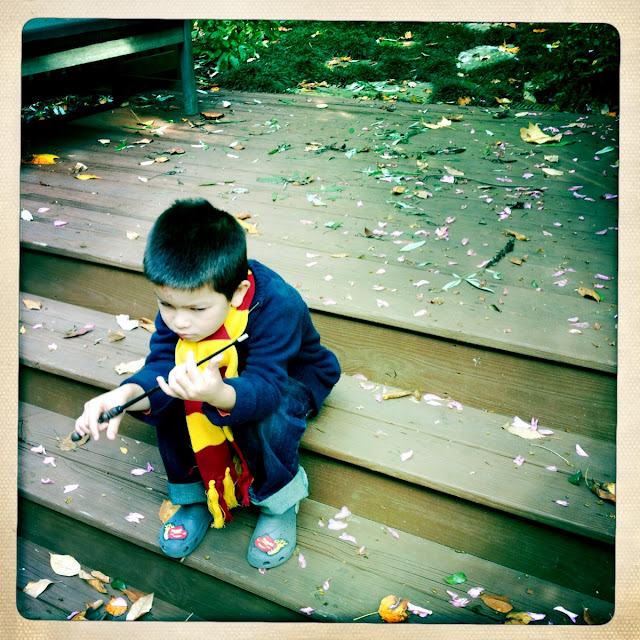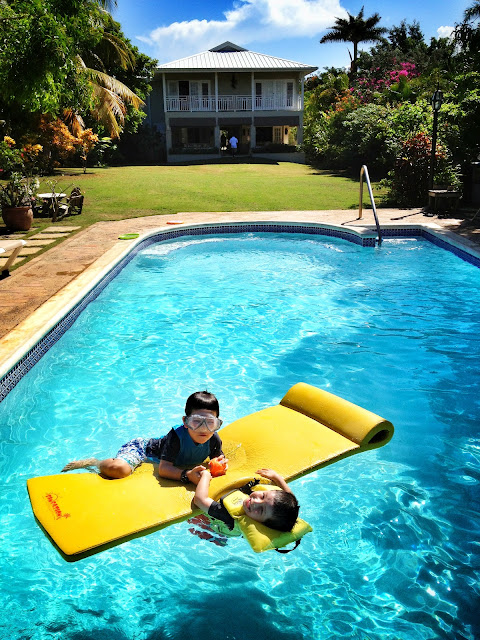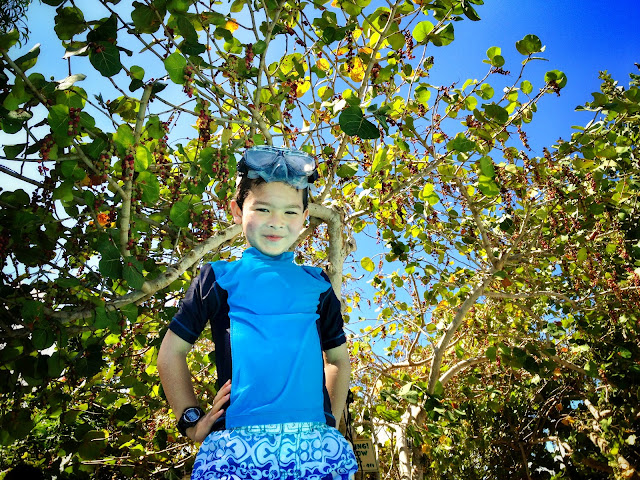Today is my last day of maternity leave, and if you're thinking to yourself, "well,
that went quick," I totally agree. Not as quick as my five week leave with Cal, or my six week leave with Mack, but it still didn't seem much longer than those other times, somehow. One's perception always expands to fill the timeframe allotted I guess, which is probably why, no matter how long I had or when I started, my papers in college were always finished at midnight the night before. (See also: why I did not major in the humanities.)
I am something of a planner (this is what Joe calls me, though I think this is charitable--I have what might more accurately be described as a crippling attention to detail with a vivid imagination for catastrophe and outlay for at least three contingencies) so I've been gearing up for going back to work for, oh, at least the last month. I knew I had to go back to work August 31st, so naturally I started stressing about it August 1st. SHUT UP, I'M NORMAL. So here's what we have going on.
Naturally, the milk. I started pumping when Nina was probably about three weeks old (with the boys I started pumping sooner, both because I had less time was not as worried about weight gain with them than with Nina--she was
on the smaller side when she was born and I didn't want to, you know, screw with the system until breastfeeding was firmly established) and I think we have amassed a goodly stockpile for my re-entry.
As I think I've mentioned before, the pump I'm using is the
Medela Symphony. I used the Symphony with Cal, lugging it into work with me for six months on the subway (it's not, like, 50 pounds or anything, but it's a hefty hospital grade pump so I crammed it into a giant L.L. Bean backpack and looked every bit like the former
Hunter student that I once was: monstrous square backback on the subway at dark o'clock every morning--at least I wasn't reading "The Grapes of Wrath" or "The Chosen"). When the rental company I was using with the Symphony folded, I bought a
Pump in Style, which I used for another six months with Cal, and then for almost a year with Mack, and it worked fine. But now, returning to the Symphony, I have to say--it's a
much better pump. It's just
solid, and it works more efficiently too, which is great when you need to pump but have only a short amount of time to get the job done. Obviously it costs more too, but you can rent it, or buy it an resell it like I plan to. (Since it's a hospital-grade pump, it operates on a closed system and is therefore approved for multiple users--the new owner would just need to get
a new collection system and fresh tubing.) I would also like to point out, for anyone else in the same boat, that
the purchase of a breast pump can be deductible on your medical flex account if you have one for work. (I printed out
that article and stapled it to the receipt when I submitted it to my business office, and had no problems.)
I know a lot of people use
those plastic baggies to store their milk, but I never have--experimentation in the medium led to a lot of spillage and of course the solid waste over the course of a year is not inconsiderable. So for the third time in a row now I'm using this
Mother's Milkmate system, which is basically a series of wire racks and little bottles (the bottles store up to five ounces I think but I never fill with more than four, because it can get messy, and of course if you end up freezing the bottle there's no room for expansion). I obviously think this system is the way to go since I've gone back to it twice, because it easily shows you how much milk you have and dispenses the stash from oldest to newest in a way that satisfies my
neuroticism attention to detail. (If my use of
masking tape labels color coded by day doesn't tell you everything you need to know about my personality, I'm not really sure what will.)
Some pro tips: get a few packs of
extra storage bottles to have around, because between having some in the freezer and having dirty ones in the dishwasher, a good percentage of the bottles are going to be out of circulation each day and you want to have enough clean ones lying around to pump and store. The rack itself comes with ten bottles those bottles screw directly into
the boob horns of the pump setup, which means less pouring and transferring of your hard-won bounty. As an added plus, you can also screw on any standard-sized nipple (the
Medela ones or
the freebies they give you at the hospital fit fine) and feed directly from the storage bottle itself, which is very convenient as long as your baby isn't particular about bottle feeding. (We didn't get one of these non-particular babies, however. She's a woman of discriminating tastes, about which more later.)
I work at the same place now as I did when Mack was born, so luckily I have my pumping logistics and geography pretty much down. Since the year I pumped with Mack, the hospital has actually added a lactation room pretty close to the OR, but from what I've heard they've missed the mark a bit because while it is a room with a door and a chair, it apparently doesn't have a sink. People,
you need a sink, both to wash your hands before and to rinse your pump parts after. Sure, you could carry your stuff down the hall and rinse them in the lounge, but believe me, people get awfully squeamish when they have to see your lady gear. So I'll do what I did last time, which is pump in the bathroom of the female doctor's locker room. It sounds kind of grim, but it's actually
leagues better than where I pumped as a resident--it's reasonably clean first of all, and there's an overhead light, which seems redundant to mention in this modern age, but believe me,
it's not a given. Also, 100% fewer dirty mops are stored in this particular bathroom. So basically it's like Shangri-La.
So you need a place to pump at work. Here's what you really need: a pump, a platform to put it on (desk, table, bench, what have you--I put my pump on a hamper), a sink, a door (for the sake of workplace discretion), an electrical outlet, a fridge, and an insulated bag with some ice packs to get it all home. The electrical outlet is technically optional I guess, but using a battery pack to power a pump over the long term is going to cost you bank because those things eat batteries like Cookie Monster eats cookies, so just do yourself a favor and just park near an outlet.
Let me say here that although I've nursed all three of my kids, I have a problem with people being a little
too adamant about breastfeeding as the be all end all. Feeding your kid formula is just fine as I and millions of other formula-fed humans will attest, and
what you feed them is probably somewhat lower on the list of things that are essential to their health and well-being than, you know, loving them and being attuned to their needs and safety, all that jazz. So I have a problem with people making moms feel like they're
failures if they can't/choose not to breastfeed. Look, breastfeeding is great if it works for you, but it's not as important as many,
many other things you can do for your baby, like, for example, getting them vaccinated against dangerous childhood diseases. BUT I DIGRESS.
Anyway, what got me to that last point is that I was going to say that the more militant of the breastfeeding literature says that if you're going to
dare to go back to work and tear yourself away from your tiny human, that you should ideally be pumping every two or three hours during the day. (Pause for laughter.) I don't know
anyone who has a job that allows them to pump every two or three hours, do you? I mean,
maybe if you work from home, but even then, I bet it would be rough, because of the actual "work" part. So just get that out of your head. It is impossible. I pump maybe two or three times a day total. Once in the morning before I leave for work. Once midday, around lunchtime. And once later in the evening, if I'm working late. I also usually take some sort of galactagogue--with the boys I took
domperidone, and with Nina I've been taking this
Lactation Support stuff (basically fenugreek with other herbal jazz) and supply has been pretty good. Once I get home, I just nurse on demand, which basically means I have a baby attached to me all evening and all night. Good stuff.
Ironically, it was much easier to find time to pump as a resident than it is now that I'm an attending. This seems counterintuitive, but the reason is that as an anesthesia resident we were mandated to get a thirty minute lunch/bathroom break midday, during which time I knew someone was covering my patient and I had no explicit clinical responsibilities. As a grown-up (that is to say, now that I'm an attending), I don't
get lunch breaks anymore. I mean, I
eat lunch (usually), but I just grab it between other things to do, because I can be (and am) called to do
something constantly throughout the day. A thirty minute break is the stuff of pure fantasy. So when I pump at work, it's kind of like playing Frogger. I eye the rooms I'm supervising, calculate how long it will be until they need me or until my next patient shows up in pre-op or how long it's going to be before the surgeon removes The Big Clamp or starts dissecting around The Pulsating Thing--and then I just run for it. Really, I just need ten or fifteen minutes, because I have everything in place and for the most part assembled. So I run in to pump, give the parts a cursory rinse and dry (I do the real wash at home, in the dishwasher--the heat effectively sterilizes everything) and run my stash to the refrigerator, all hopefully before I get called to do the next thing.
Of course, pumping the milk is just the first part of going back to work if you breastfeed; you also have a way to, you know, get the milk inside your baby. With Cal and Mack, I introduced the bottle in earnest at about two weeks, and they had very little trouble transitioning between the two (something that made me seriously doubt the phenomenon of "nipple confusion" that people talk about) but Nina has been a little more of a tough nut. She really, really,
really strongly prefers to nurse over bottle feeding. I started having my high-level surrogates (sorry, I just rewatched the entire run of "The West Wing" in its entirety over my leave and my mind is still half in the Santos-McGarry campaign) giving her a bottle or two a day starting around three or four weeks, but she just kind of hated it for a while. We tried a bunch of different nipples and bottles, but so far what works best for her is the same thing we used for her brothers, which is this
Playtex nurser system set.
It's marketed as better for breastfeeding babies, and I don't know if that's just a bunch of hooey but it does have
the widest nipple base of any that we tried (how many times have I said the word "nipple" in this entry? NIPPLEZZZ!) and I think that she's the most comfortable with it because it's the most boob-like non-boob that we have in our arsenal. I also like it because it uses these
drop-in liners, which not only means that we don't have to actually wash a bottle (the plastic "bottle" is really just a tube-shaped frame to hold the plastic liner and for you to grab onto) but it allows you to really squeeze out all the air from the milk reservoir before feeding, not unlike priming a syringe. (Yeah, I just said that. WHAT?) For a happy refluxer like Nina, this ability to minimize the air swallowed is a nice benefit.
Nina's smart though, in that she will
rarely agree to take the bottle from me, probably because she knows that when I'm there she has better options. Sometimes she won't take the bottle (or will at least fuss more) if she knows I'm even nearby--this leads to the hardest part of transitioning out of maternity leave, which is:
leaving before you really have to leave.
I knew I was going to be on call my first day back at the hospital, and would be away from her for maybe fourteen hours or more. Obviously that's a long time, and I didn't want my first day back (stressful for many other reasons) to be all the more shocking to the baby because OMG WHERE DID THE BOOB LADY GO? I wanted Nina to know well before it was time for me to go back to work for real that even if I wasn't there, there were other people there to hold her and feed her and love her. Maybe it was more for myself than anything else, but I needed to see for myself that she was going to be OK before I actually left. So starting a few weeks ago, I started "leaving" during the day, for increasingly long periods, a few hours at a time.
We are very lucky to have a nanny that has been with us since before Mack was born, and she knows and loves our kids, which has made it a lot easier. But still, I will tell you that the hardest part of these "trial separations" is being in the house, hearing her cry, and letting someone else get her. I've literally had to sit on my hands a couple of times. Which is probably why I end up leaving the house during most of these "training" periods, and why Target has all of my money. But Nina now takes the bottle during the day, she and our nanny now know each other pretty well, and we have our little schedule and routine pretty set, including coordinating school pickups and drop offs for the boys with the baby in tow. I'll be sad leaving tomorrow morning but I won't really be
too worried, because hey, we practiced.
We got this.It's both wonderful and terrible to be needed so much by someone, but then also see that they're OK with someone else too. I remember when I went back to work after Cal was born, thinking, "How can this little person possibly survive without me?" But he did. They all do. But I guess this period is the act of parenting a child in a nutshell. They'll do fine, but you try your hardest to prepare them for success and happiness the best that you can. And look, I know, DRAMA QUEEN, you're just going back to work, not joining the Foreign Legion. But these little transitions can be hard on everyone, though hopefully with all the prep it will be harder for me than for her.
Hey guys. See you at work tomorrow.
















.jpeg)
































